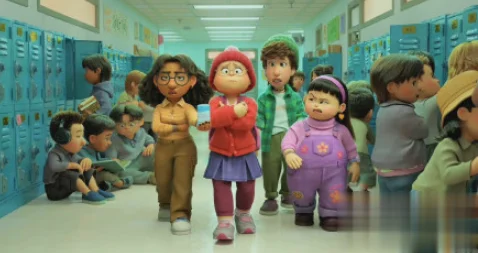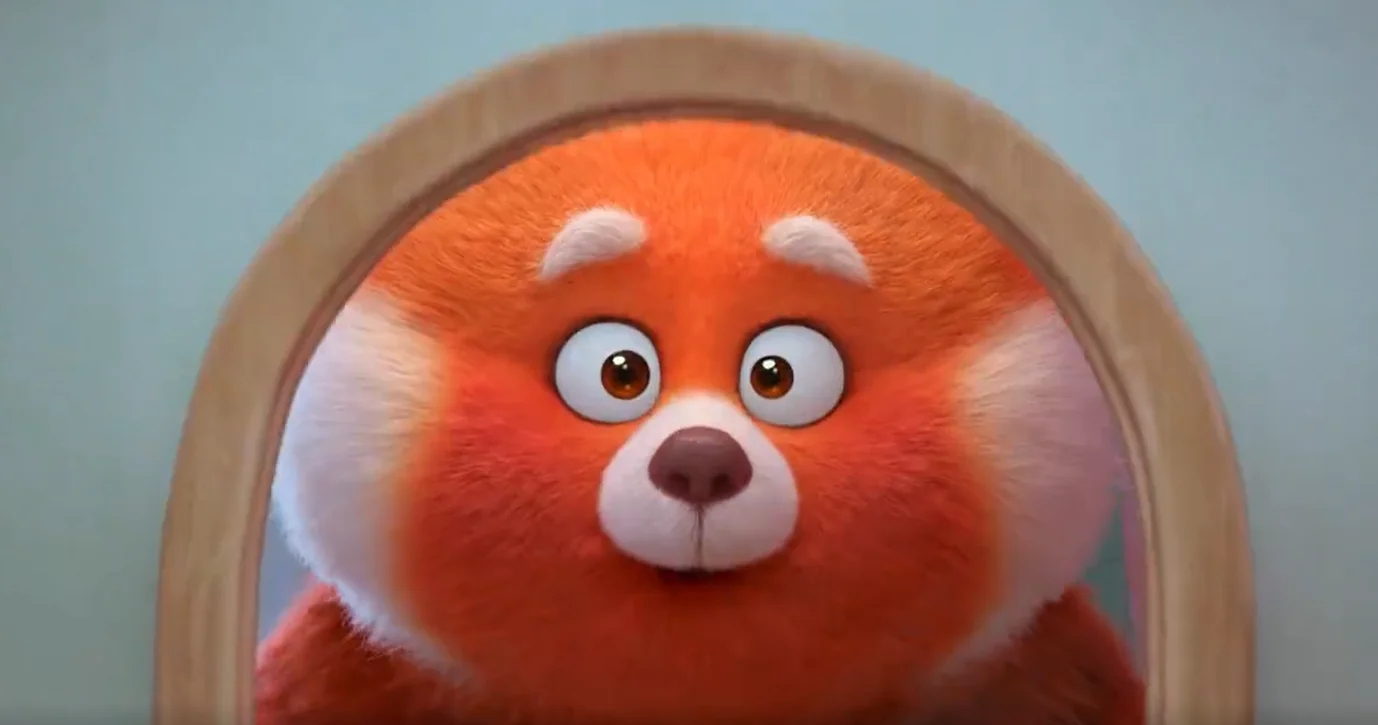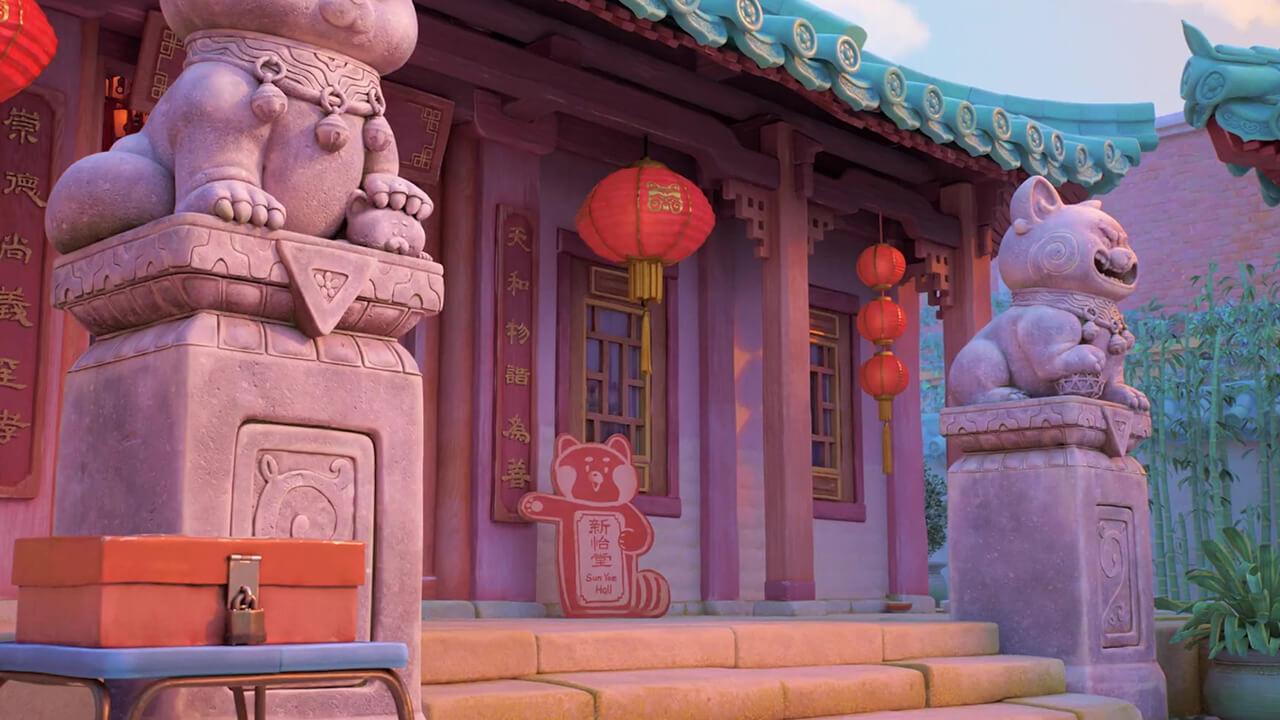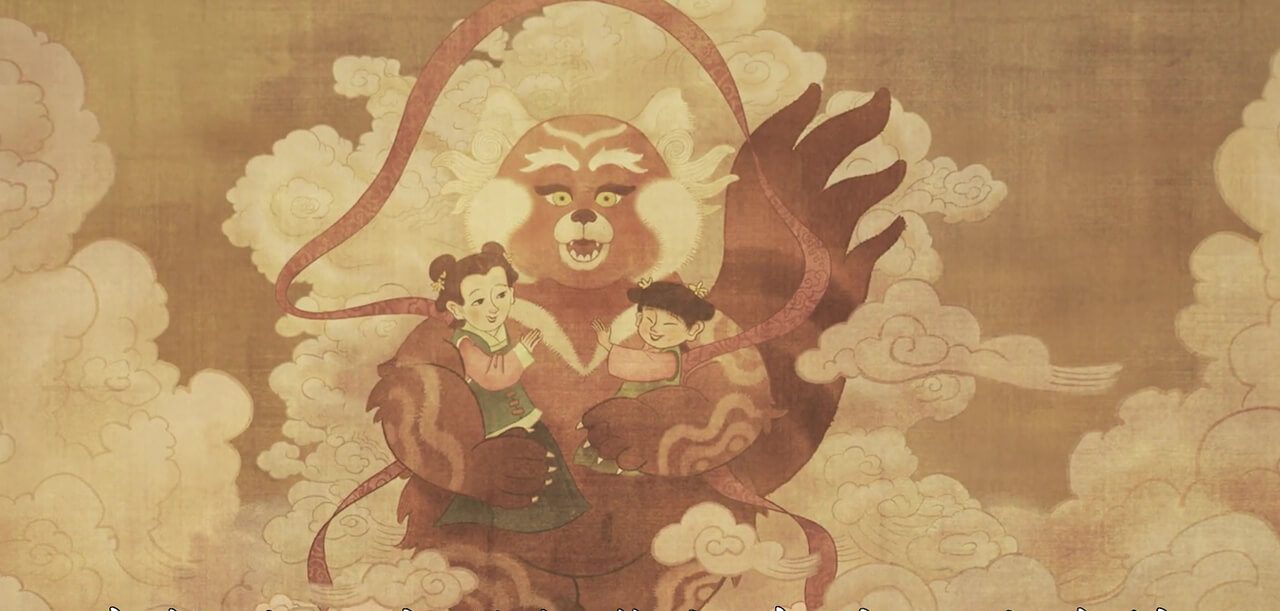Throbbing is an uneasy inner activity caused by rapid heartbeat and emotional agitation. This psychology is often associated with first love, dreams, rebellion, and ego in adolescence.
The animated film “Turning Red” tells the fantasy story of Meilin, a Chinese-American girl who has entered adolescence. Once she has a strong “throb” in her heart, she will transform into a giant red panda.

Under the turbulent youthful appearance, the film is wrapped in the soothing of young girls’ worries, the examination of intimacy, and the promotion of cultural exchanges.
Chinese director Domee Shi, who won the Best Animated Short Film Award at the 91st Academy Awards for his animated short film “Bao”, uses more romantic and bold three-dimensional brushstrokes this time to depict her own girlish nostalgia for her real life, which is also cross-cultural. Looking for the answer to the subordination and resistance of adolescent girls in the background.
Related Post: “Turning Red”: A teen film intertwined with ethnicity and gender issues .
An exploration of family intergenerational relationships
There are many movies in the history of movies that discuss the relationship between mother and daughter. “Lady Bird” and “The Lost Daughter” have attracted widespread attention.
“Turning Red” uses comedy, exaggeration, fantasy and collage animation to present the universality and particularity of mother-daughter relationship in a cross-cultural perspective.
The film is set in a Chinese family where the power of fatherhood is absent and women occupy a dominant position.

From ancestor Xinyi to Meilin’s grandmother, to Meilin’s mother, women have the absolute right to speak in the family, and this power comes from the “red panda” mutant gene inherited in the blood.
This gene originally gave the female ancestors of the Li family the superpower to guard the family. When the world entered a new order, the “red panda” in Meilin’s body became a “rebellious” symbol of escaping from family life and pursuing female independence.
It can be said that the power of Ancestor Xinyi is the myth that women replace men, and then become men and live as men, which means that women need to pay the price of “alienation”, so as to graft masculinity and take over the power of men.
It can be seen from the fact that the women of the Li family’s mother generation sealed their superpowers, they have not really moved towards independence, and they need to restrain themselves in exchange for men’s equal attention.
In Meilin’s generation, women’s consciousness has been completely awakened, and the most important thing for her is to become what she wants.
This not only reflects the chemical reaction produced by the border and collision of Eastern and Western values, but also a deep reflection on equality between men and women.
The virtual setting of “Red Panda”, this supernatural existence, is the inner driving force for the development of the story, the key to stabilizing the traditional mother-daughter relationship, and the password to unlock a new type of mother-daughter relationship.

With the power of animation special effects, the conflict between mother and daughter in the film is no longer limited to the stereotyped trivial quarrel, the dodging eyes of still water, or the ruthless decision to part ways and other realistic simulations, but to keep the film viewing and interesting. On the basis of sex and profound connotation, let the imagination wander.
For example, the climax of the conflict between Meilin’s mother and daughter broke out. Instead of the quarrel and quarrel full of “people’s livelihood news”, two red pandas, one big and one small, were used to flash and roar, which touched people’s hearts and made people laugh.
Another example is the reconciliation of the three generations of grandma, mother and Meilin. Instead of arranging the plot to solve the mother-daughter problem by using the dining table and bed, but in the deep bamboo forest “using the mirror as a medium”, let them release the “freedom”. “Beast” soul, not only the visual effect of the picture is very impactful, but also helps to break through the metaphorical relationship.
Animation bridges the gap between different aesthetics, provides a more realistic and abstract imagination space, allows different audiences to resonate from their own perspectives, and then inspires and adjusts the relationship between mother and daughter in real life.
The fusion of elements of cultural conflict
“Turning Red” contains rich multicultural elements, such as the traditional culture representing the parents’ generation: ancestral hall, Tai Chi, court drama, Cantonese, etc., and the popular culture representing the youth: the National Television Tower, Western bands, hip-hop music, multi-ethnic, etc. .
The focus of the film is to show teenagers rebelling against traditional paternalism and seeking a warm belonging in adolescence. It focuses on depicting Meilin’s escape from family control and emotional entanglements with friends, as well as Meilin’s relationship between “good girl” and “rebellious girl”. Swinging, delicately outlines the youthful characteristics of young girls who compromise and resist in compromise.

This also reveals the tangled situation of young girls in their multiple complex identities such as daughters, teenagers, Asians, fans, etc., and at the same time gives a glimpse of the relationship between youth popular culture and traditional parent culture that is mutually resistant, inseparable, and dependent on each other. .
The contradiction between traditional parental culture and youth popular culture is the core conflict of the film, but there are hidden conflicts within traditional parental culture and youth popular culture.
At the end of the film, these cultural conflicts are integrated into the carrier of the Quad Cities concert.
The Cantonese slogan of the grandmother and others at the sealing ceremony and the hip-hop music of the Four Cities Band “breaks the wall” and merges, showing the possibility of reconciliation and complementarity between traditional parent culture and youth pop culture, and playing a unique and harmonious Chinese and Western culture. The sound of cultural integration.
Culture is not only a barrier that separates groups or individuals, but at the same time it can become a bond that binds groups or individuals together.

In the continuous integration of multiculturalism, parents and teenagers have completed the change of thinking and entered a new stage of life.
“We all have a hidden beast in us, and we all hide a scruffy, noisy, weird version of ourselves that a lot of people don’t expose, but I did.”
From the initial rejection to the final acceptance, Meilin accepted her self with changeable emotions, floating desires and throbbing youth, and accepted the female symbol of “Turning red”.
At this point, the disturbing throbbing of youth has sublimated into a weapon that helps the girl break through the bondage and find her true self.
The grandma, mother, aunt and others finally unblocked the “beast” in their hearts, which strengthened the belief in the film: respecting oneself and living closely with one’s own soul can produce the most powerful female power.
Related Post: Pixar shares a comparison of the “Turning Red” protagonist Meilin’s version of the red panda and the real red panda.


